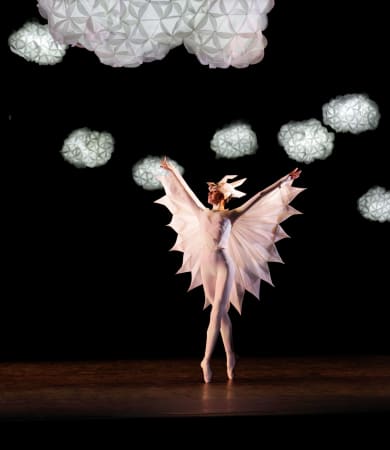Preview for young adults
Under 28 years old? At noon, book your €10 seats for the opera Don Quichotte by Jules Massenet.
Preview for young adults
Under 28 years old? At noon, book your €10 seats for the opera Don Quichotte by Jules Massenet.



Currently at the Opera
See the calendarNews
See all the news-
Learn more
19 April 2024
New
Cast change: Don Quichotte
-
Learn more
08 April 2024
Tous à l'Opéra ! Édition 2024
-
Learn more
26 March 2024
Bleuenn Battistoni nominated Danseuse Étoile de l'Opéra national de Paris
-
Learn more
27 March 2024
Prix de l'Arop season 2022/2023
-
Learn more
20 March 2024
The artistic programme 24/25 is online !
-
Learn more
18 March 2024
Kinoshita Group Co., Ltd. and the Paris Opera are glad to announce the signature of a major partnership
-
Learn more
08 March 2024
Cast change: Don Quichotte
-
Learn more
06 March 2024
The Exterminating Angel: cast change
-
Learn more
24 February 2024
Anna Ringart obituary
-
Learn more
22 February 2024
La Traviata: cast change
Life at the Opera
-
Video
Draw-me Don Quichotte
Watch the video
-
Video
Street Scenes in rehearsal
Watch the video
-
Video
Draw-me Médée
Watch the video
-
Video
Podcast Médée
Watch the video
-
Video
From chrysalis to butterfly: Paris Opera Ballet School students rehearse for annual show
Watch the video
-
Video
Draw-me Don Quixote
Watch the video
-
Video
Absolute revenge - Interview with David McVicar
Watch the video
-
Video
Draw-me Salome
Watch the video
-
Video
Giselle, romantic and sincere
Watch the video
-
Video
Draw-me Giselle
Watch the video
The Opera in streaming

Watch our greatest performances wherever you are with POP, the Paris Opera's streaming platform.
Free trial 7 days
-
03h40
Live Saturday, June 29 at 7:00 p.m.
03h40
-
01h00
Jiří Kylián
Ballet
01h00
-
02h05
02h05
-
00h37
00h37
-
01h22
01h22
-
00h31
L'Opéra en Guyane - Episode 4
Documentary
00h31
-
02h11
02h11
-
02h09
02h09
-
03h33
03h33
-
02h21
02h21
Immerse in the Paris Opera universe
Business Space
-
Patronage and Sponsorship
-
Your public relations operations
-
Rental of spaces and filming
-
Licensing program, advertising space and cultural engineering
-
Galas
Place de l’Opéra
75009 Paris
Place de la Bastille
75012 Paris
Back to top
































































